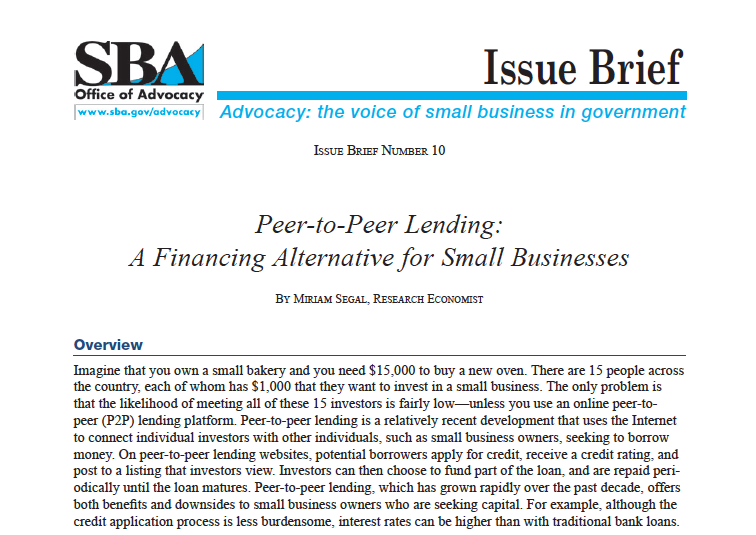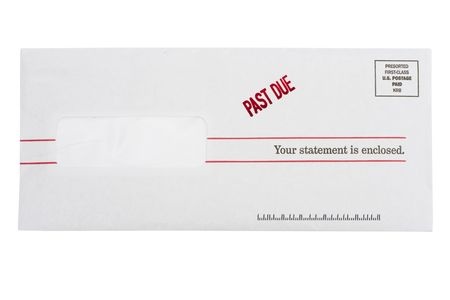Articles by Patrick Siegfried
FCC Issues Citations for Insufficient TCPA Disclosures
September 22, 2015 The FCC recently issued telemarketing citations against First National Bank and Lyft, Inc., a ride-sharing service. The Commission cited the companies for requiring their customers to consent to receiving auto-dialed calls and texts as a condition of using the companies’ services. The FCC alleged that the companies’ requirements violated regulations issued pursuant to the Telephone Consumer Protection Act that forbid companies from requiring their customers to agree to receive marketing robocalls and auto-dialed calls/texts as a condition of purchasing any goods, services, or property. The citations demonstrate the Commissions’ intent to actively enforcing the TCPA and its regulations.
The FCC recently issued telemarketing citations against First National Bank and Lyft, Inc., a ride-sharing service. The Commission cited the companies for requiring their customers to consent to receiving auto-dialed calls and texts as a condition of using the companies’ services. The FCC alleged that the companies’ requirements violated regulations issued pursuant to the Telephone Consumer Protection Act that forbid companies from requiring their customers to agree to receive marketing robocalls and auto-dialed calls/texts as a condition of purchasing any goods, services, or property. The citations demonstrate the Commissions’ intent to actively enforcing the TCPA and its regulations.
In light of the FCC citations, small business lenders that engage in telemarketing sales –especially to cellphones – should review their TCPA disclosures. In particular, companies need to ensure they obtain “prior express written consent” before engaging in auto-dialed calls/texts to mobile numbers. And as the FCC noted, the requirements are exacting:
The agreement must be in writing;
The agreement must bear the signature of the person who will receive the advertisement/telemarketing calls or texts;
The language of the agreement must clearly authorize the caller to deliver or cause to be delivered advertisements or telemarketing messages via auto-dialed calls, texts, or robocalls;
The written agreement must include the telephone number to which the person signing authorizes advertisements or telemarketing messages to be delivered; and
The written agreement must include a clear and conspicuous disclosure informing the person signing that:
- By executing the agreement, the person signing authorizes the caller to deliver or cause to be delivered ads or telemarketing messages via auto-dialed calls, texts, or robocalls; and
- The person signing the agreement is not required to sign the agreement (directly or indirectly), or agree to enter into such an agreement as a condition of purchasing any property, goods, or services.
In the event that consent is disputed, it is the caller that bears the burden of “demonstrating that a clear and conspicuous disclosure was provided and that unambiguous consent was obtained.”
While the citations do not carry monetary penalties, the FCC may impose sanctions against First National and Lyft if the violations continue. The citations also invite the filing of private TCPA actions against the companies. All the more reason for small business lenders to conduct a proactive review of their TCPA compliance procedures.
Court Finds Usurious Late Fees Unenforceable
September 19, 2015 Though usury caps are only applicable to loan transactions, courts often reference usury rates when determining the reasonableness of fees charged on amounts due. A fee that significantly exceeds the applicable usury rate may be found to be an unenforceable penalty and uncollectible. Companies that impose late fees or other types of charges on their customers must be careful to ensure their fees will be found enforceable by a court.
Though usury caps are only applicable to loan transactions, courts often reference usury rates when determining the reasonableness of fees charged on amounts due. A fee that significantly exceeds the applicable usury rate may be found to be an unenforceable penalty and uncollectible. Companies that impose late fees or other types of charges on their customers must be careful to ensure their fees will be found enforceable by a court.
For example, a NY court recently found a late fee charged by a condominium association unreasonably excessive and refused to enforce it. The charge at issue was related to unpaid common charges. The defendant’s charges were $1,175.85 per month. The defendant failed to pay her monthly charges so the association assessed late fees ranging from $200 to $800 per month. When the association later filed a foreclosure action for multiple unpaid common charges, the defendant argued that the late fees were excessive and confiscatory and should not be allowed.
The court noted that while a usury defense was inapplicable, the 25% rate set by NY’s criminal usury statute provided a guide to what constituted excessive fees. The court found that because the fees significantly exceeded the usury rate they were unreasonable penalties and could not be enforced. As a result, the court reduced the late fees to $0.04 per dollar owed.
As this case shows, courts will often look to applicable usury rates when determining the reasonableness of contractual fees and other types of charges. Fees that significantly exceed these rates are likely void and uncollectible. For this reason, a company that wishes to charge contractual fees would be wise to stay below the statutory usury rate. While the rate may result in a lower fee, the amount charged is more likely to be enforced by a reviewing court.
Board of Mgrs. of the Park Ave. v Sandler, 2015 N.Y. Misc. LEXIS 3284 (N.Y. Sup. Ct. Sept. 11, 2015)
SBA Offers Balanced Review of Alternative Small Business Lending
September 15, 2015 In response to the Treasury’s RFI, I expect many industry commentators to encourage potential government regulators to engage in a careful review of the small business finance market before deciding on a course of action. As an example of the type of review necessary, these commentators could highlight the recent issue brief published by the SBA Office of Advocacy entitled “Peer-to-Peer Lending: A Financing Alternative for Small Businesses“.
In response to the Treasury’s RFI, I expect many industry commentators to encourage potential government regulators to engage in a careful review of the small business finance market before deciding on a course of action. As an example of the type of review necessary, these commentators could highlight the recent issue brief published by the SBA Office of Advocacy entitled “Peer-to-Peer Lending: A Financing Alternative for Small Businesses“.
While the scope of the paper is limited to P2P loans used for business purposes, it explains how alternative small business lenders are expanding access to capital:
Compared to traditional loan products, marketplace loans feature decreased search costs; this is a result of the proprietary credit scoring algorithms that the lending platforms use. This decrease in costs makes it economical for lenders to provide smaller and/or shorter-term loans to firms on which less information is available. Such firms may include those that are younger, less established, have a shorter credit history, lack collateral, or may be in acute financial distress (e.g., imagine that you own a bakery and your only oven stops working).
The paper recognizes that alternative lenders are able to offer financing to small businesses that previously had no way of obtaining working capital, a fact that is often misunderstood or disregarded by industry critics. The paper also explains some of the reasons why alternative small business loans charge higher rates when compared with other types of loans:
[E]ven controlling for observable borrower characteristics, loans for small businesses were more than 250 times more likely to perform poorly than loans for other purposes, which may give some insights into why such loans are charged a higher rate. Put simply, investors require a higher payoff in order to fund these riskier loans, and for some small businesses, an expensive loan may be better than no loan.
Overall, the paper is a evenhanded assessment of a complex topic. It highlights how alternative lenders have increased credit availability for small business owners while explaining the economics behind the rates charged. And as the policy discussion regarding marketplace lenders begins, explaining these facts will become increasingly important.
Multiple State Regulators Challenging Lender’s Use of Choice of Law Clause in Usury Enforcement Actions
September 11, 2015 A growing number of state regulators are challenging the use of choice of law provisions as a method of usury law compliance. On August 27, 2015, the Attorney General of North Carolina was granted an injunction against Western Sky Financial and CashCall¹. The injunction prohibits them from offering any loans to North Carolina consumers or collecting on any outstanding accounts in that state.
A growing number of state regulators are challenging the use of choice of law provisions as a method of usury law compliance. On August 27, 2015, the Attorney General of North Carolina was granted an injunction against Western Sky Financial and CashCall¹. The injunction prohibits them from offering any loans to North Carolina consumers or collecting on any outstanding accounts in that state.
Prior to the issuance of the North Carolina injunction, the Massachusetts Division of Banks sent a cease and desist letter to Western and CashCall stating that each had violated Massachusetts’ law by engaging in the small loan business without a license and that each had violated the state’s criminal usury statute (the letters were initially sent in 2013 but the Division’s findings were recently challenged by Western and CashCall in Massachusetts Superior Court. The court issued its ruling on the challenge on August 31, 2015²). The cease and desist orders specifically directed Western and CashCall to cease collecting on loans made to Massachusetts borrowers, refrain from transferring the loans, refund all interest charges and fees received from borrowers during the last four years, and submit a list of borrowers to whom reimbursement is owed.
And just yesterday the Attorney General of the District of Columbia filed a lawsuit against Western, CashCall and their owner, J. Paul Reddam. The complaint alleges that the defendants charged their customers interest rates in excess of the District’s usury cap. The District is seeking a permanent injunction, restitution, statutory penalties and attorney fees.
In response to both the North Carolina and Massachusetts actions, Western and CashCall asserted that they were not subject to the regulators’ jurisdiction because the choice of law clause in their loan contracts provided the laws of the Cheyenne River Sioux Tribe governed the transactions. The defendants argued that the rates charged were permissible under tribal law (a similar argument is expected to be made by the defendants in response to the DC complaint).
Their argument was rejected in both cases. The reviewing courts found that a contractual choice of law provision did not govern a state regulator and that North Carolina and Massachusetts could pursue the defendants for their alleged violations of local usury laws. These decisions, along with the complaint filed by DC’s Attorney General, cast further doubt on a lender’s ability to rely on a choice of law clause when faced with regulatory enforcement actions.
¹State ex rel. Cooper v. Western Sky Fin., LLC, 2015 NCBC 84 (N.C. Super. Ct. 2015)
²Cashcall, Inc. v. Mass. Div. of Banks, 2015 Mass. Super. LEXIS 87 (Mass. Super. Ct. Aug. 31, 2015)
3rd Circuit Affirms FTC’s Role as Cybersecurity Cop
September 10, 2015 Under the Federal Trade Commission Act, the FTC has broad powers to regulate unfair and deceptive business practices. The FTC has interpreted these powers to include the regulation of cybersecurity measures used by businesses to protect customer data. If the FTC believes that a company’s cybersecurity measures are unreasonably inadequate, it may bring a suit against the company for what it deems an ‘unfair’ act.
Under the Federal Trade Commission Act, the FTC has broad powers to regulate unfair and deceptive business practices. The FTC has interpreted these powers to include the regulation of cybersecurity measures used by businesses to protect customer data. If the FTC believes that a company’s cybersecurity measures are unreasonably inadequate, it may bring a suit against the company for what it deems an ‘unfair’ act.
This is exactly what the Commission decided to do in its recent suit against Wyndham Worldwide Corporation. On three different occasions, Wyndham’s computer systems were hacked and consumers’ personal data was accessed and stolen. In its complaint, the FTC alleged that the security breaches were a result of Wyndham’s failure to use adequate measures to safeguard its customers’ data. The FTC argued that Wyndham’s security measures were so lax that it constituted an ‘unfair’ act under federal law. Wyndham moved to dismiss the complaint and argued that the FTC lacked the authority to regulate cybersecurity under the unfairness prong of the FTC Act.
The trial court denied Wyndham’s motion and the Third Circuit upheld the decision. In its opinion, the Third Circuit noted that the FTC Act purposely does not list specific unfair acts. Rather, the Act was intended to be flexible and capable of evolving along with changing business practices. Therefore, the Circuit Court held that the FTC had authority to regulate cybersecurity.
The decision is noteworthy for alternative small business funders and brokers that electronically receive and store volumes of personal customer data. Companies must be aware that the FTC expects them to maintain a certain standard of cybersecurity and those that fail to meet that standard may be subject to enforcement actions. It is also clear that the FTC is making cybersecurity a top priority as just yesterday it held the first of a series of conferences on data security strategies.
Companies in the small business finance space would be wise to compare the FTC’s recommendations with their current cybersecurity procedures.
FTC v. Wyndham Worldwide Corp., 2015 U.S. App. LEXIS 14839 (3d Cir. N.J. Aug. 24, 2015)
Regulator Disregards Choice of Law Provision in Usury Enforcement Action
September 1, 2015 Last Thursday, the Attorney General of North Carolina was granted an injunction against Western Sky Financial and CashCall prohibiting them from offering any loans to North Carolina consumers or collecting on any outstanding accounts in that state. The Attorney General argued that the payday loans offered by the defendants violated North Carolina’s usury laws.
Last Thursday, the Attorney General of North Carolina was granted an injunction against Western Sky Financial and CashCall prohibiting them from offering any loans to North Carolina consumers or collecting on any outstanding accounts in that state. The Attorney General argued that the payday loans offered by the defendants violated North Carolina’s usury laws.
The defendants countered that the loan agreements at issue included choice of law provisions that made the law of the Cheyenne River Sioux Tribe the governing law. The defendants argued that the rates charged were permissible under tribal law.
The Superior Court rejected the defendants’ arguments and granted the Attorney General’s request for the injunction. The court reasoned that the Attorney General “was not a party to the Loan Agreements, but instead [wa]s acting as an enforcement arm of the State of North Carolina.” Because the Attorney General was not a party to the agreements, the court found that the Attorney General was not bound by the agreements’ choice of law. Therefore it could enforce North Carolina’s usury laws against the defendants.
In support of its ruling, the court cited BankWest, Inc. v. Oxendine. In that case, the Georgia Court of Appeals held that “[t]he parties to a private contract who admittedly make loans to Georgia residents cannot, by virtue of a choice of law provision, exempt themselves from investigation for potential violations of Georgia’s usury laws.” 462 Mass. 164, 172 (2012).
These cases are concerning for lenders that engage in interstate lending activities because they undermine the use of choice of law provisions as a method of usury law compliance. Choice of law provisions serve dual purposes. By selecting the governing law beforehand, a lender can be more confident that the terms of its loan agreement will be enforceable against a debtor. Additionally, a choice of law provision narrows the number of states that could potentially have an interest in the transaction. This limits the number of laws the lender must comply with.
These decisions, however, cast doubt on a lender’s ability to rely on a choice of law clause when faced with a regulatory enforcement action. This could result in the paradoxical situation where a court permits a lender to enforce a choice of law clause to collect interest on a contract but at the same time allows a state regulator to bring a usury action against the lender based on the exact same contract.
What Does the Federal Reserve Think About When It Thinks About Alternative Small Business Financing?
August 27, 2015 The Federal Reserve Bank of Cleveland recently published results of a focus group it conducted on alternative small business financing. As part of the paper, the Fed included a brief discussion of some of the questions raised by the study. The considerations discussed offered an interesting glimpse of some the legal issues the Fed is thinking about in relation to alternative small business finance.
The Federal Reserve Bank of Cleveland recently published results of a focus group it conducted on alternative small business financing. As part of the paper, the Fed included a brief discussion of some of the questions raised by the study. The considerations discussed offered an interesting glimpse of some the legal issues the Fed is thinking about in relation to alternative small business finance.
First, the Fed considered the increasing trend of bank referral partnerships and wondered if such referral arrangements raise disparate impact concerns under the Equal Credit Opportunity Act. It asked:
Do issues of disparate treatment arise if banks refer certain customers to their alternative lending partners, but offer traditional loan products to others?
The Fed’s question seems to suggest that a bank’s referral of some customers to alternative lenders over others could potentially be used against the bank in a disparate impact claim. The Fed’s comment is especially noteworthy given the recent Supreme Court decision in Texas Department of Housing and Community Affairs v. The Inclusive Communities Project, Inc. That decision approved the use of the disparate impact theory under the Fair Housing Act. Many observers had hoped the Court would find that such claims could not be brought under the FHA and thereby limit their use under other federal statutes, such as ECOA.
The Fed was also interested in the effect the use of automated underwriting systems is having on small business lending. It asked:
Does the use of automated underwriting raise or address fair lending concerns?
Unfortunately, the Fed did not specify in what ways it believes fair lending laws may be implicated by the use of automated systems. These concerns could include larger societal issues, such as the effect automated systems are having on credit availability. Or they may involve practical considerations, such as how lenders are meeting their disclosure requirements under ECOA given the increasing number of applications reviewed by automated processes.
While these questions are quite preliminary, they offer interesting insight about how regulators are thinking about the industry and the issues they’re focusing on.
Debtor Permitted to Pursue Injunction Against Creditor Even After Creditor Ceases Collection Efforts
August 26, 2015 Debt collection is tricky business. While a creditor would love to be able to recover on their outstanding accounts, they have no desire to incur additional losses. So its understandable that when a creditor encounters a potentially litigious debtor the creditor may, in certain circumstances, decide to cease attempts to collect on the debt rather than risk incurring additional costs in the form of attorney fees. A recent case out of a Louisiana federal court, however, shows that simply ceasing collection efforts may not be enough to avoid litigation.
Debt collection is tricky business. While a creditor would love to be able to recover on their outstanding accounts, they have no desire to incur additional losses. So its understandable that when a creditor encounters a potentially litigious debtor the creditor may, in certain circumstances, decide to cease attempts to collect on the debt rather than risk incurring additional costs in the form of attorney fees. A recent case out of a Louisiana federal court, however, shows that simply ceasing collection efforts may not be enough to avoid litigation.
The case involved allegedly usurious late fees a condominium association charged its member on association dues. Two association members filed a class action lawsuit arguing that the interest rates associated with the fees exceeded Louisiana’s usury cap. The members requested that the court issue an injunction against the association prohibiting it from charging or seeking to collect the allegedly usurious fees.
The association responded by submitting affidavits to the court stating that it was no longer charging its members the fees at issue and that it had ceased collection efforts on all outstanding fees. It argued that because no fees were being assessed or collected, injunctive relief was inappropriate.
The court rejected the association’s argument and permitted the members to pursue their request for the injunction. The court reasoned that because the association’s governing documents had not been revised and still permitted the assessment of the allegedly usurious fees, there still existed a possibility that the association could decide to resume charging and collecting the fees. Therefore, the members were entitled to seek protective relief.
The court’s decision shows that simply ceasing collection efforts on disputed debt may not be sufficient to prevent later litigation costs. Instead, a creditor that believes that it is likely to face a usury challenge may want to consider taking steps to affirmatively disclaim the potentially usurious interest charges or even the entire interest amount altogether. By disavowing its rights to such payments, the creditor may be able to preempt the debtor’s ability to obtain injunctive relief from hypothetical collection efforts.
Case cite: Reyes v. Julia Place Condos., 2015 U.S. Dist. LEXIS 110310 (E.D. La. Aug. 20, 2015)






























